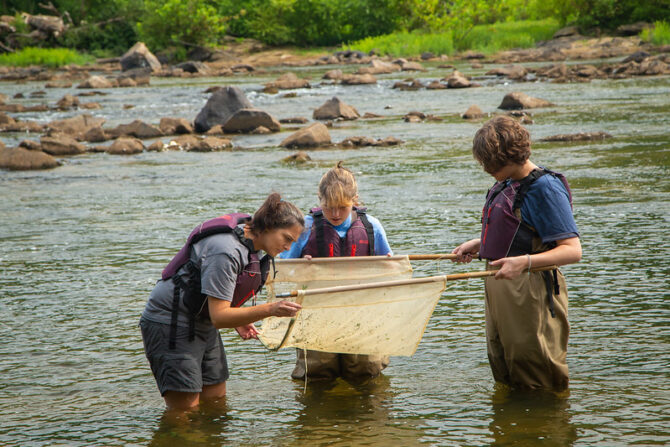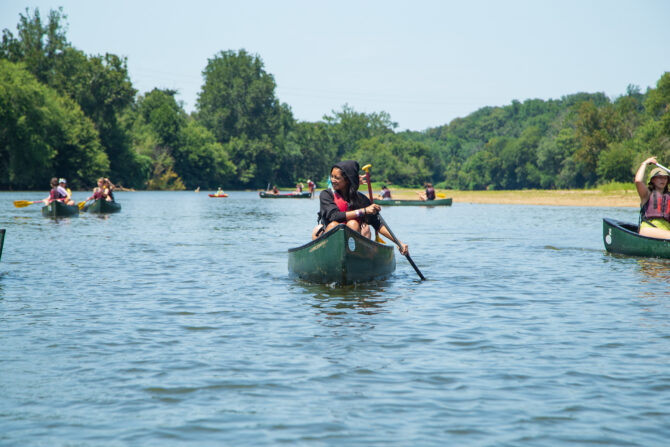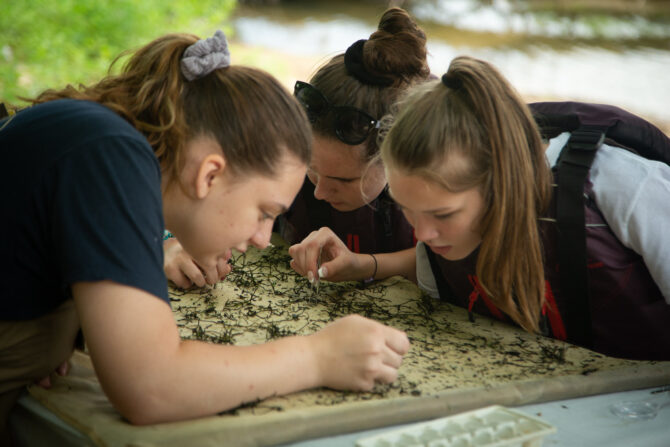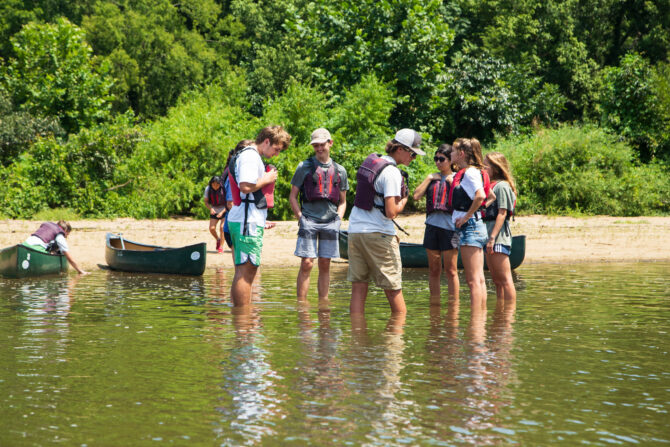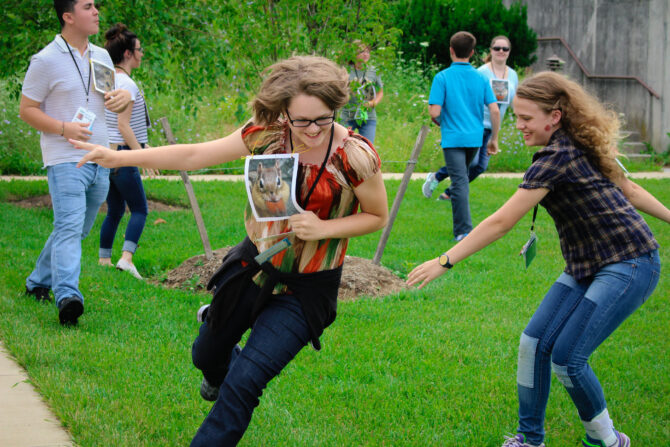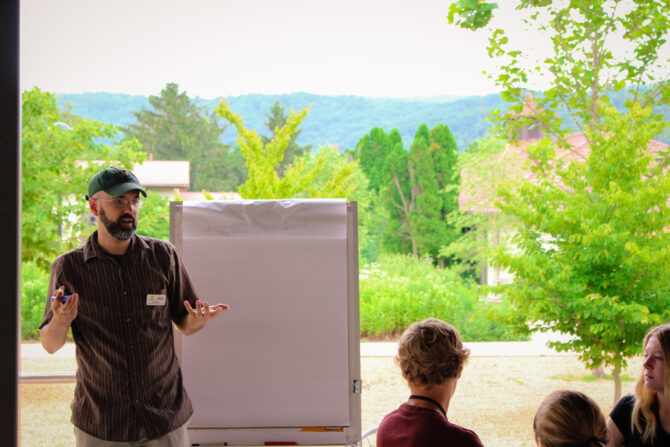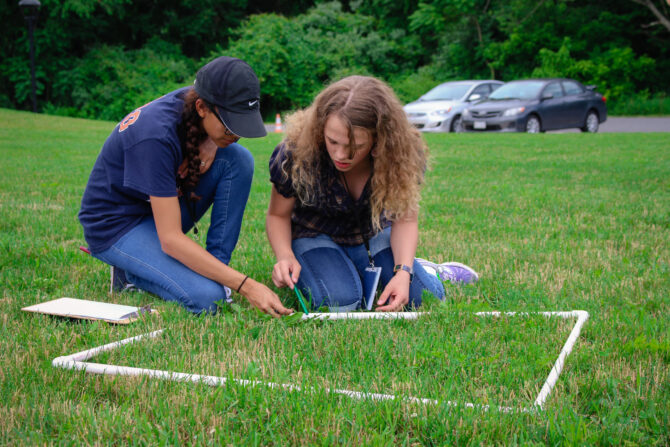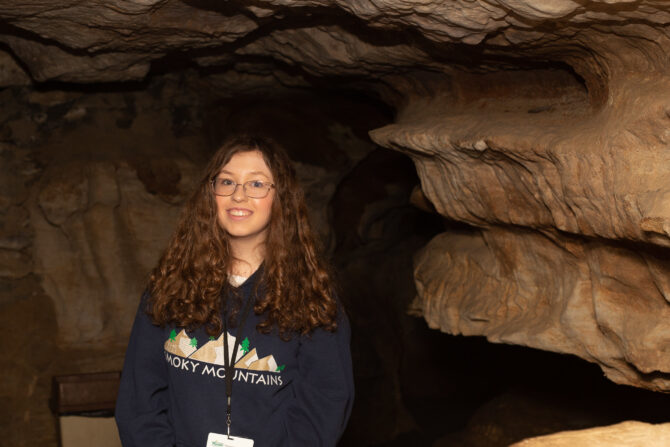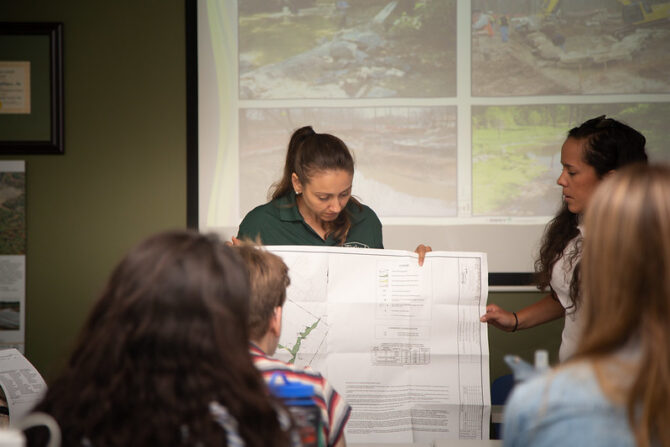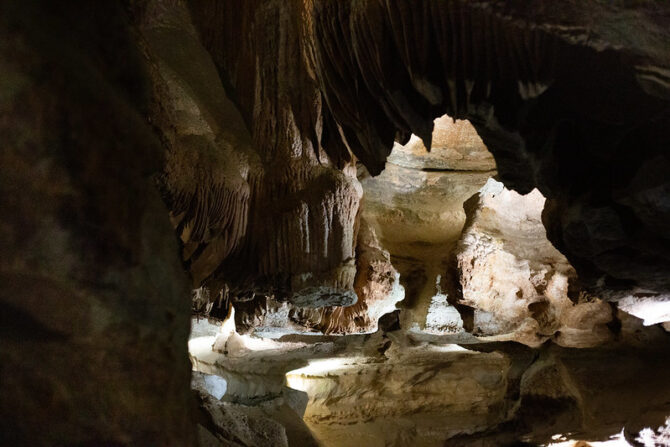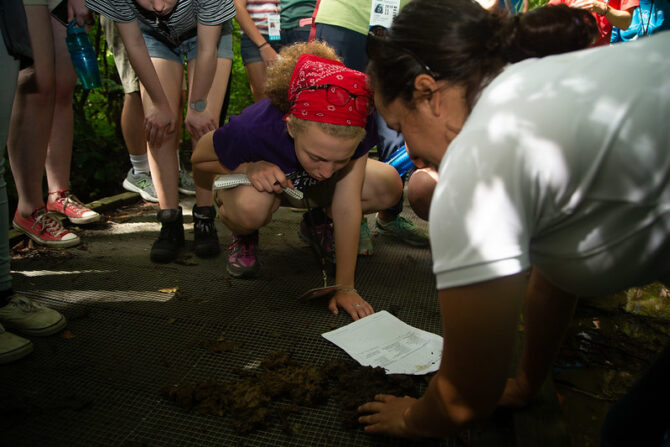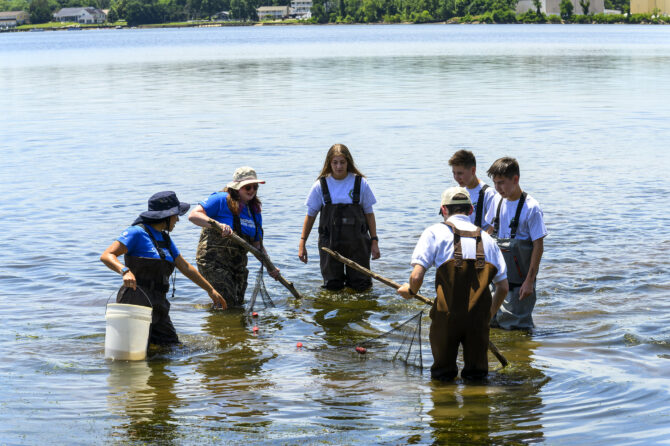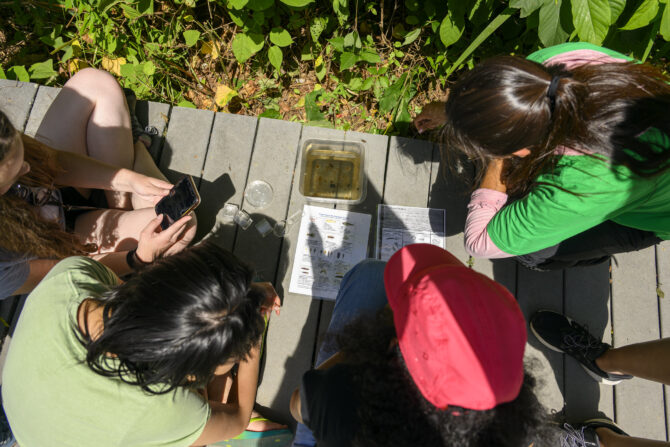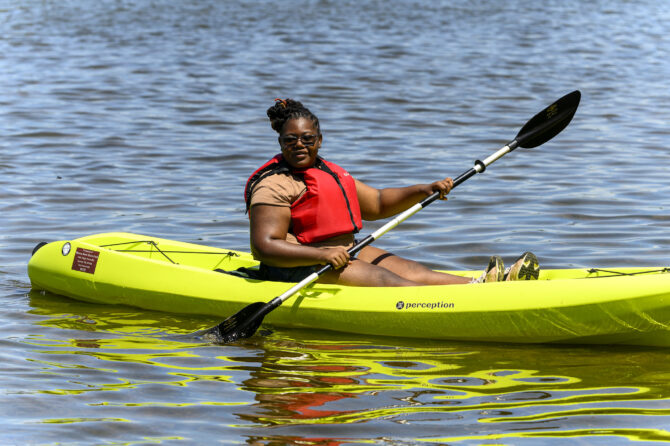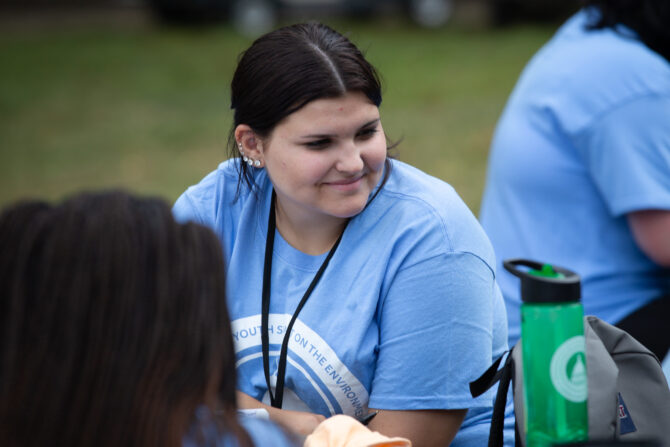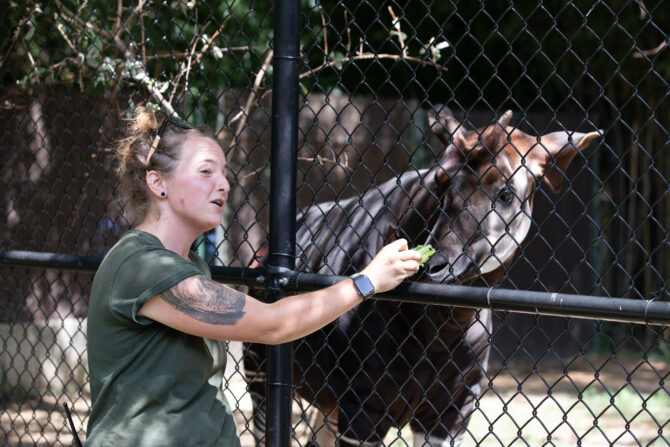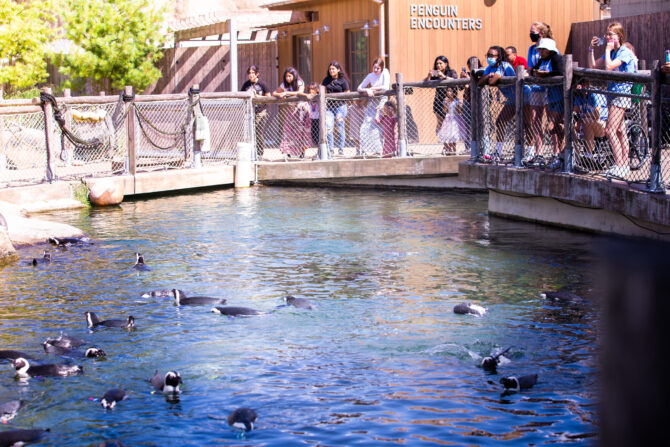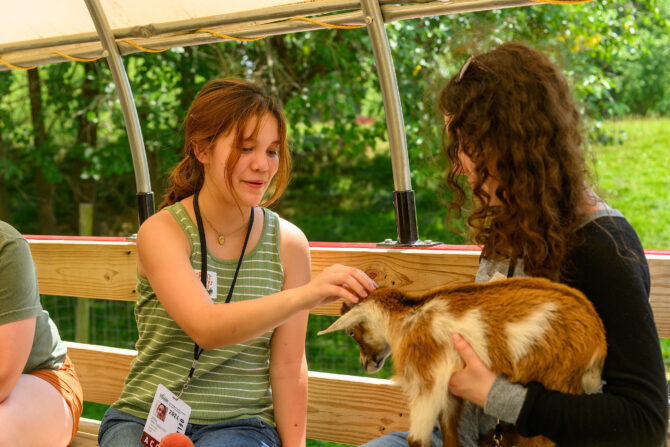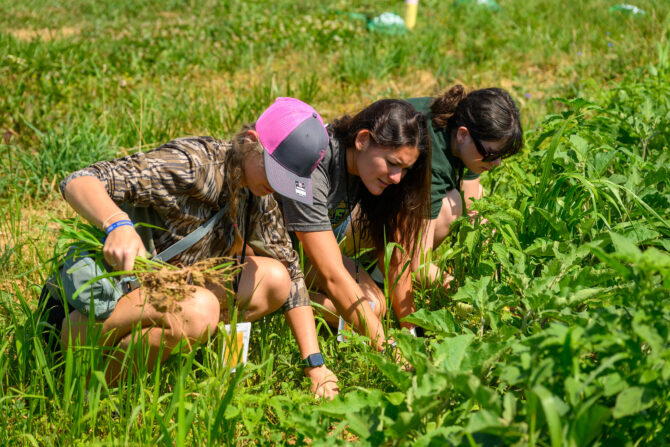2025 FIELD VISIT LOCATIONS
Friends of the Rappahannock
Friends of the Rappahannock: Water Quality Assessment & Canoeing takes students to Fredericksburg, VA, where they will become water quality specialists and complete sampling and assessment activities to determine the biological and chemical health of the Rappahannock River.
After their assessments, they can enjoy nature through a guided tour and a canoe trip on the river. Bring a bathing suit and a towel if you want to cool off in the river on your trip!
Friends of the Rappahannock (FOR) is a citizen organization with a mission to be the voice and active force for a healthy and scenic Rappahannock River. This river dumps directly into the Chesapeake Bay, the largest estuary in the United States.
SMITHSONIAN CONSERVATION BIOLOGY INSTITUTE
The Smithsonian Conservation Biology Institute in Front Royal, Virginia is the home of the Smithsonian-Mason School of Conservation (SMSC), where students will come face-to-face with some of the most endangered species in the world. During this field visit, students will explore the career of a Smithsonian scientist as they tour this magnificent research facility, have conversations with Smithsonian researchers, and participate in field activities like camera trap deployment, bird observation, and insect collection and observation. SMSC seeks to sustain global biodiversity by advancing the theory and practice of conservation biology with transformative, hands-on education.
National aquarium in baltimore
The National Aquarium in Baltimore is one of the top aquariums in the nation that works at a regional and global level on conservation initiatives that provide real solutions for protecting marine and aquatic life alongside human communities. Students who attend this trip will get special access to the “behind the scenes” non-public areas of the aquarium. Students can expect to learn about the important conservation work this organization is doing to support our marine environments around the world.
SKYLINE CAVERNS/WETLAND STUDIES AND SOLUTIONS
The Water Flow through Earth’s Surface field visit takes students to the Skyline Caverns, a series of 50 million year old caverns in the Shenandoah Valley, and then to Wetland Studies and Solutions, a leading natural resources consulting company focused on wetlands. During their time at Skyline Caverns, students will learn about the role of water in forming these enormous underground ecosystems and see anthrodite formations unique to these caverns. They will then travel to Wetland Studies and Solutions, where they will tour their LEED-gold offices and learn about their work to protect wetlands. At WSS, students will see the importance of wetlands in protecting the balance of water on earth.
Shenandoah RIVER STATE PARK/BLUE RIDGE WILDLIFE CENTER
Shenandoah River Raymond R. “Andy” Guest Jr. State Park is on the South Fork of the Shenandoah River and has more than 1,600 acres along 5.2 miles of shoreline. The park opened in June 1999. In addition to the meandering river frontage, the park offers scenic views of Massanutten Mountain to the west and Shenandoah National Park to the east. Students at this site visit will learn about park systems and habitat protection and capacities.
At Blue Ridge Wildlife Center, students will meet a variety of rehabilitated “animal ambassadors” and see what it looks like to intake injured wildlife. They will speak with vet techs about how veterinary medicine can expand to wild animals and help protect native species!
mason neck state park
Mason Neck is a Virginia State Park located along the Potomac River and Pohick Bay. During this field visit, you will have opportunity to canoe or kayak on Belmont Bay or Kane’s Creek with Visitor Experience Rangers. You also get to study macroinvertebrates while using dip nets and seine nets! Finally, hike a trail while learning about the raptors that call Mason Neck State Park home, like bald eagles and ospreys.
MARYLAND ZOO
The Zoo’s mission is to engage people in the wonders of the living world through personal encounters with animals, fostering empathy and lifelong support for conservation of wildlife and wild places. Take a look behind the scenes and get to know the work at the zoo during this field visit! Learn about animal training techniques and careers at the zoo as well as animal behavior in the wild versus activity. Then, take time to explore the many endangered species at the zoo!
Potomac Vegetable Farms and Great Country Farms
Explore food production, sustainable farming practices, and different approaches to farm business at Potomac Vegetable Farms (PVF) and Great Country Farms. Students will get their hands dirty at PVF as they learn about “ecoganic” farming practices, food production, and food distribution by small-scale farms. They will then visit Great Country Farms, an “agrotourism” site that includes pick-your-own fruit, a traveling chicken coop, ethical farm animal practices, and direct-to-consumer products. Students will explore these two sites and understand how food production can be profitable, sustainable, and even fun!
2025 FIELD VISIT LOCATIONS
Potomac Vegetable Farms and Great Country Farms
Explore food production, sustainable farming practices, and different approaches to farm business at Potomac Vegetable Farms (PVF) and Great Country Farms. Students will get their hands dirty at PVF as they learn about “ecoganic” farming practices, food production, and food distribution by small-scale farms. They will then visit Great Country Farms, an “agrotourism” site that includes pick-your-own fruit, a traveling chicken coop, ethical farm animal practices, and direct-to-consumer products. Students will explore these two sites and understand how food production can be profitable, sustainable, and even fun!
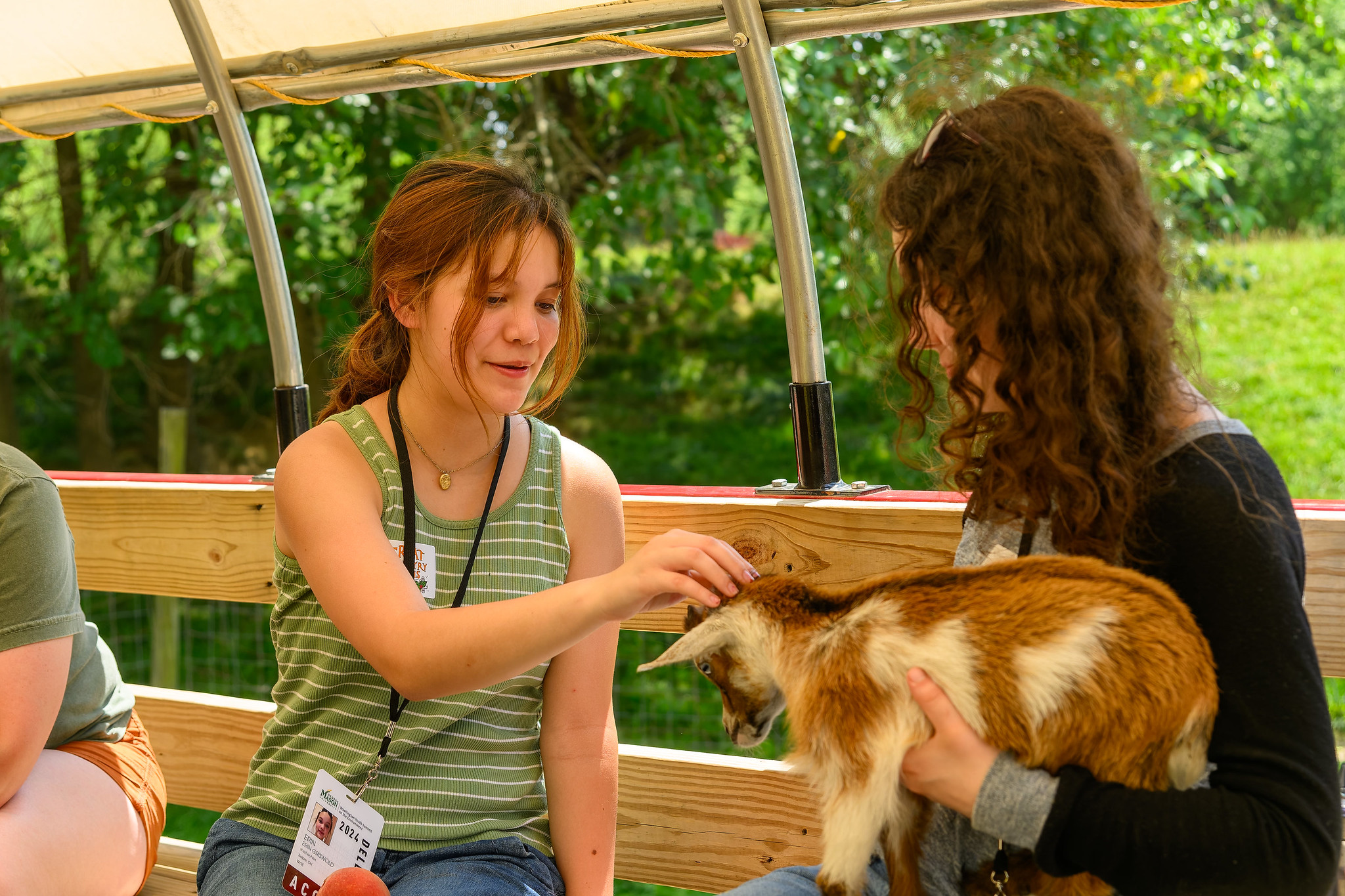
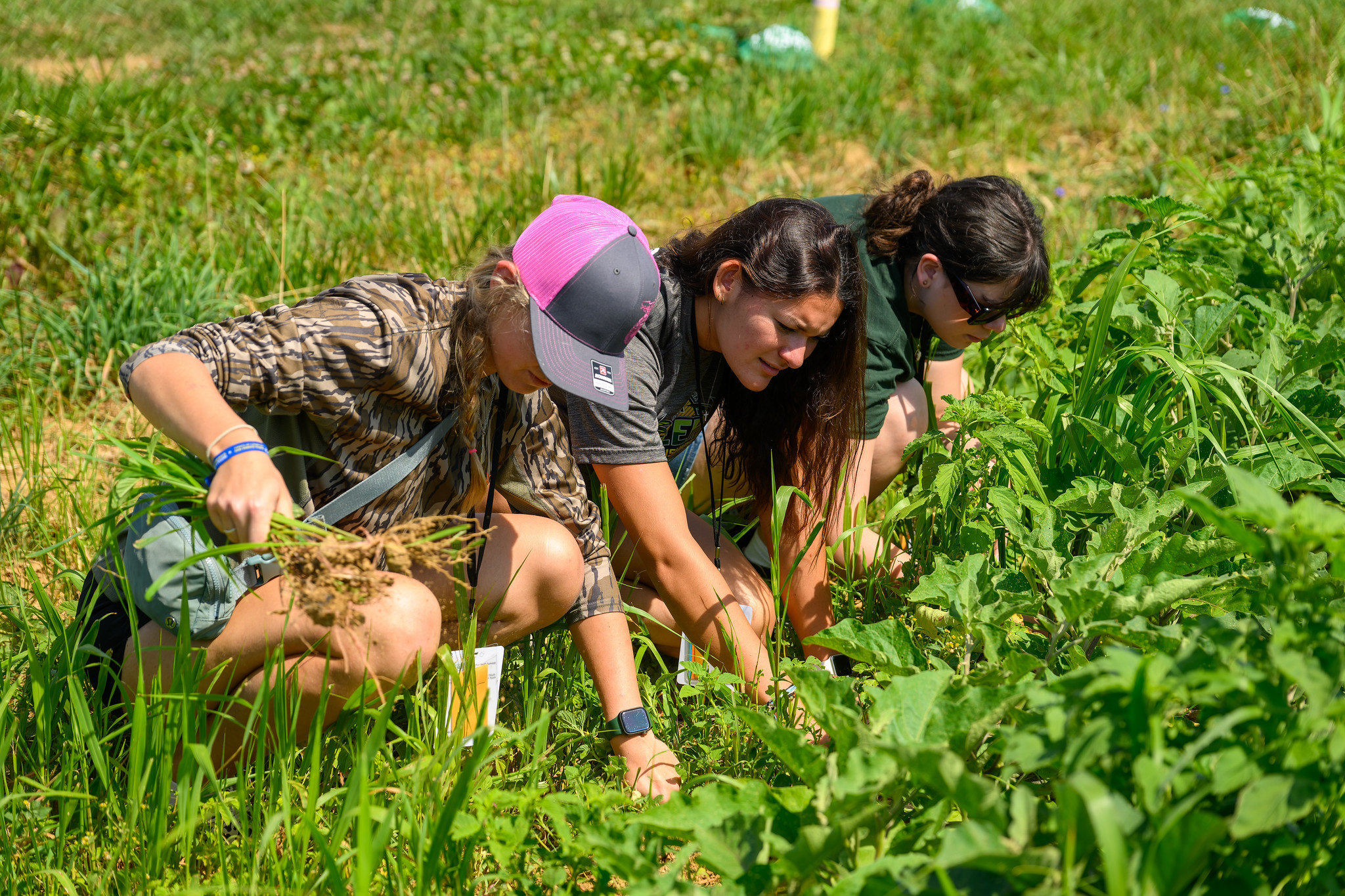
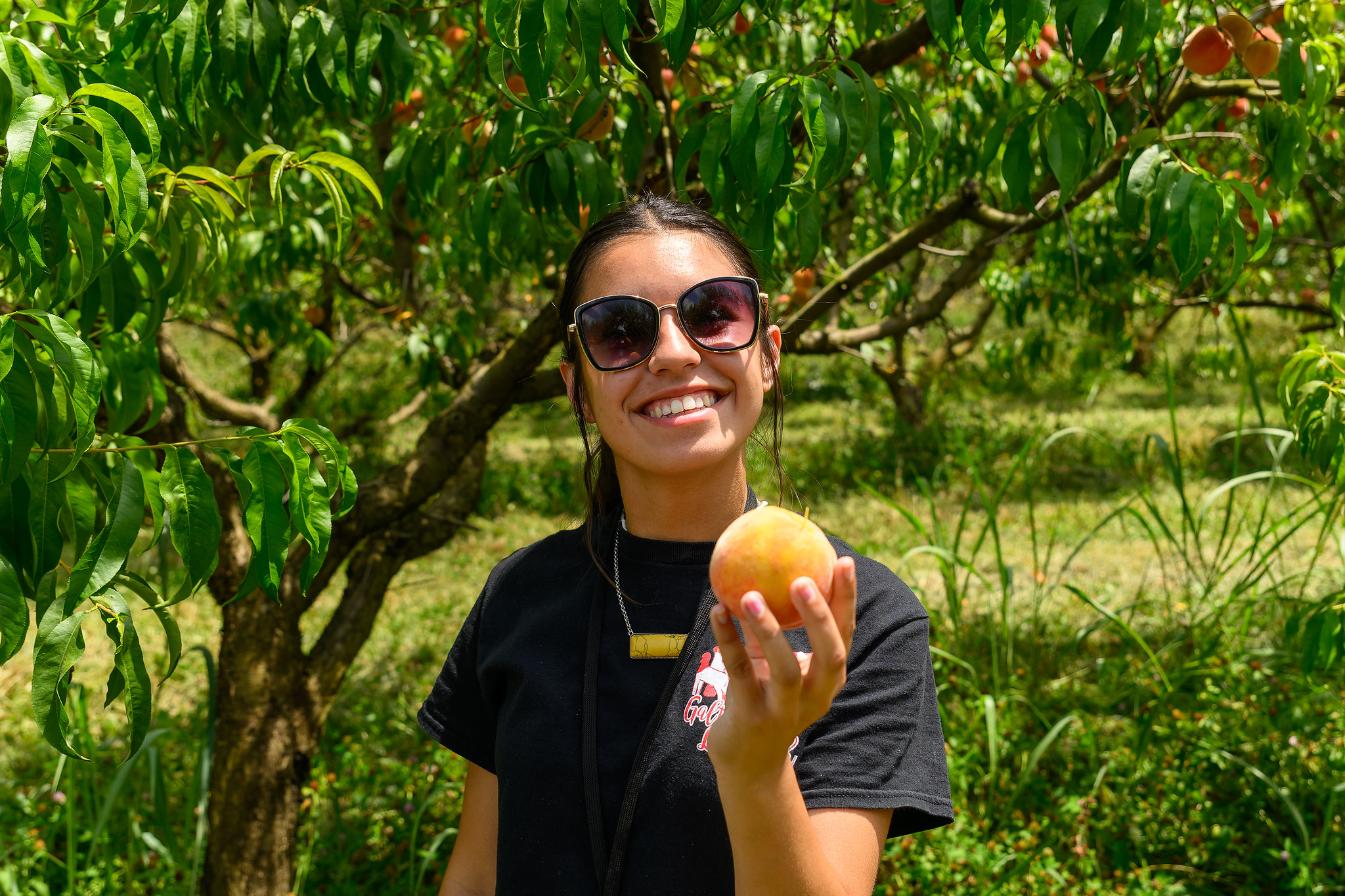
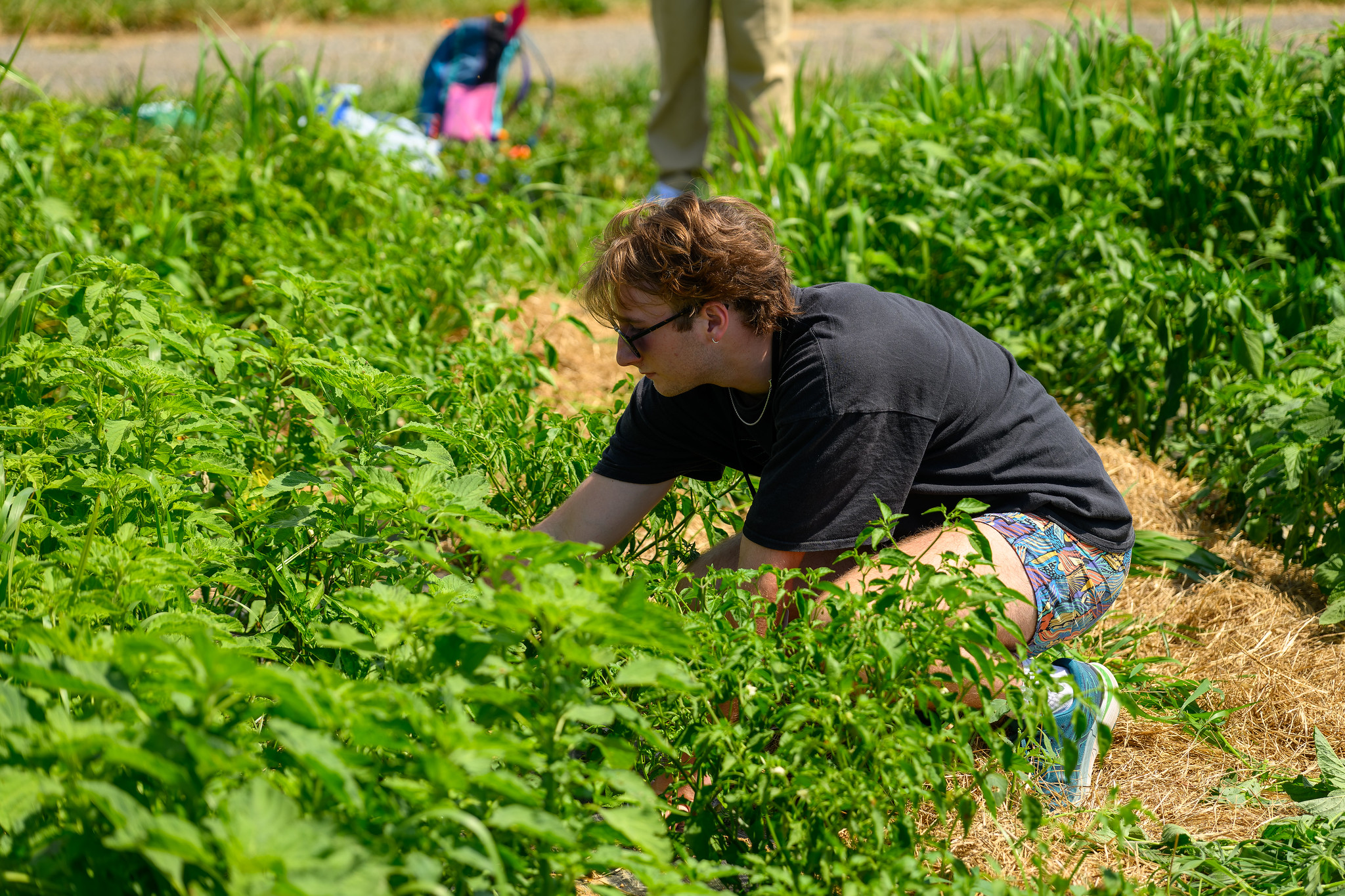
Friends of the Rappahannock
Friends of the Rappahannock: Water Quality Assessment & Canoeing takes students to Fredericksburg, VA, where they will become water quality specialists and complete sampling and assessment activities to determine the biological and chemical health of the Rappahannock River.
After their assessments, they can enjoy nature through a guided tour and a canoe trip on the river. Bring a bathing suit and a towel if you want to cool off in the river on your trip!
Friends of the Rappahannock (FOR) is a citizen organization with a mission to be the voice and active force for a healthy and scenic Rappahannock River. This river dumps directly into the Chesapeake Bay, the largest estuary in the United States.
SMITHSONIAN CONSERVATION BIOLOGY INSTITUTE
The Smithsonian Conservation Biology Institute in Front Royal, Virginia is the home of the Smithsonian-Mason School of Conservation (SMSC), where students will come face-to-face with some of the most endangered species in the world. During this field visit, students will explore the career of a Smithsonian scientist as they tour this magnificent research facility, have conversations with Smithsonian researchers, and participate in field activities like camera trap deployment, bird observation, and insect collection and observation. SMSC seeks to sustain global biodiversity by advancing the theory and practice of conservation biology with transformative, hands-on education.
National aquarium in baltimore
The National Aquarium in Baltimore is one of the top aquariums in the nation that works at a regional and global level on conservation initiatives that provide real solutions for protecting marine and aquatic life alongside human communities. Students who attend this trip will get special access to the “behind the scenes” non-public areas of the aquarium. Students can expect to learn about the important conservation work this organization is doing to support our marine environments around the world.
SKYLINE CAVERNS/WETLAND STUDIES AND SOLUTIONS
The Water Flow through Earth’s Surface field visit takes students to the Skyline Caverns, a series of 50 million year old caverns in the Shenandoah Valley, and then to Wetland Studies and Solutions, a leading natural resources consulting company focused on wetlands. During their time at Skyline Caverns, students will learn about the role of water in forming these enormous underground ecosystems and see anthrodite formations unique to these caverns. They will then travel to Wetland Studies and Solutions, where they will tour their LEED-gold offices and learn about their work to protect wetlands. At WSS, students will see the importance of wetlands in protecting the balance of water on earth.
Shenandoah RIVER STATE PARK/BLUE RIDGE WILDLIFE CENTER
mason neck state park
Mason Neck is a Virginia State Park located along the Potomac River and Pohick Bay. During this field visit, you will have opportunity to canoe or kayak on Belmont Bay or Kane’s Creek with Visitor Experience Rangers. You also get to study macroinvertebrates while using dip nets and seine nets! Finally, hike a trail while learning about the raptors that call Mason Neck State Park home, like bald eagles and ospreys.
MARYLAND ZOO
The Zoo’s mission is to engage people in the wonders of the living world through personal encounters with animals, fostering empathy and lifelong support for conservation of wildlife and wild places. Take a look behind the scenes and get to know the work at the zoo during this field visit! Learn about animal training techniques and careers at the zoo as well as animal behavior in the wild versus activity. Then, take time to explore the many endangered species at the zoo!



